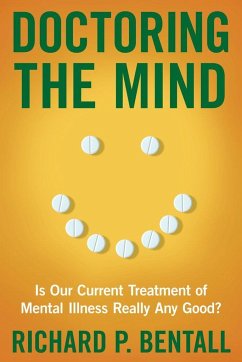Toward the end of the twentieth century, the solution to mental illness seemed to be found. It lay in biological solutions, focusing on mental illness as a problem of the brain, to be managed or improved through drugs. We entered the "Prozac Age" and believed we had moved far beyond the time of frontal lobotomies to an age of good and successful mental healthcare. Biological psychiatry had triumphed. Except maybe it hadn't. Starting with surprising evidence from the World Health Organization that suggests that people recover better from mental illness in a developing country than in the first world, Doctoring the Mind asks the question: how good are our mental healthcare services, really? Richard P. Bentall picks apart the science that underlies our current psychiatric practice. He puts the patient back at the heart of treatment for mental illness, making the case that a good relationship between patients and their doctors is the most important indicator of whether someone will recover. Arguing passionately for a future of mental health treatment that focuses as much on patients as individuals as on the brain itself, this is a book set to redefine our understanding of the treatment of madness in the twenty-first century.
Hinweis: Dieser Artikel kann nur an eine deutsche Lieferadresse ausgeliefert werden.
Hinweis: Dieser Artikel kann nur an eine deutsche Lieferadresse ausgeliefert werden.







